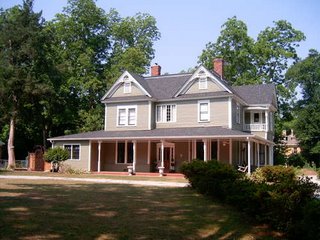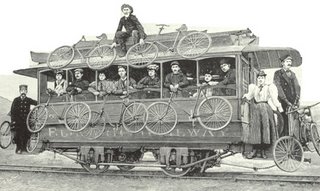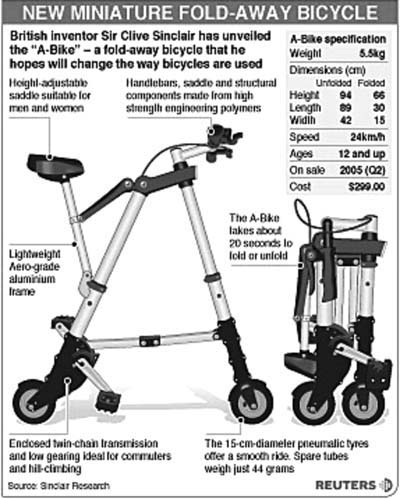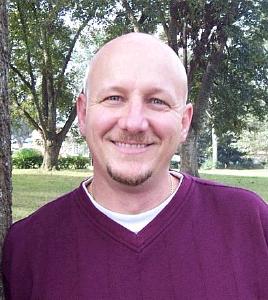Dealmaker Emory Morsberger has grand visions for commuter rail and revamping downtown Atlanta Emory Morsberger, self-described "redeveloper," knows the art of the deal. And the deals he sculpts are reshaping a good bit of Georgia landscape.
You want to ride a train that actually gets you someplace in Georgia? Talk to Morsberger, the indefatigable locomotive behind the planned Athens-to-Atlanta commuter "Brain Train."
You want a face-lift for an Atlanta mega-landmark? Call Morsberger, who asked the obvious question: "How's a white guy from Gwinnett end up with the biggest building in Atlanta?" The building is the 80-year-old, 2-million-square-foot Sears warehouse on Ponce de Leon Boulevard -- Atlanta's City Hall East for the last 15 years.
The simple answer to Morsberger's question is money. He offered $35 million, $15 million more than the nearest competitor. But a better answer is his style. Whatever he does, he couches in terms of a higher calling: making a town a better place to live, or offering road-weary commuters a break from the glacially slow I-85 traffic.
Pardon our skepticism when those words come from a developer's mouth. But Morsberger brings some credibility along with them.
What's not to like about a guy who, when he planned the $400 million Sears building restoration, ensured that new residents will include disabled citizens, who also will get preference in hiring by retailers located in the project?
The one-time Republican state legislator even wins accolades from leading Democrats. "He's a Republican, but I like him," said former Gov. Roy Barnes. "A darn good guy when it comes to vision." Atlanta Mayor Shirley Franklin called him "wonderful."
There's a subtle reason a Democrat would like Morsberger: the hidden power in his pro-transit argument. Morsberger's been pushing the Athens-to-Atlanta commuter line since 2005 as a way not only to un-stuff suburban roads, but to connect Atlanta-area universities with the University of Georgia. That's why he calls it the Brain Train.
He recently released a poll that showed a 71-19 percent Gwinnett County majority in favor of the commuter rail. "A landslide in any language," said pollster Mark Roundtree of Duluth-based Landmark Group. "And Republicans favored the train by 1 percentage point more than Democrats."
That dispels the myth that transit is only for Birkenstock-wearing city folk. Couple that with the poll's findings on gubernatorial contenders, and you have the makings of a political earthquake. In Republican Gwinnett, incumbent Sonny Perdue scored only a 61 percent favorable rating. Democrats Cathy Cox and Mark Taylor were at 49 percent and 30 percent, respectively.
Perdue represents his roots: rural, white Georgia. He's been no friend of Atlanta or, for that matter, even heavily Republican suburban Gwinnett. And he's no fan of transit; it's synonymous with GOP-reviled Atlanta. So, if Perdue doesn't weigh in on behalf of the Athens-Atlanta train, Cox has the opportunity to surf the pro-rail groundswell. She might even overcome Perdue's 12-point lead, capture Gwinnett -- and that could be the tipping point for Georgia. All it would take would be Cox saying, "I vow that in 60 months, that train will be running."
Morsberger didn't want to get political -- although he admitted anger at the GOP-dominated Legislature's 11th-hour insertion into the budget of a resolution that makes it much harder to spend state money on commuter rail. It wrecked the purchase of train cars for a south-metro commuter rail to Lovejoy. And "it will slow down [the Athens-Atlanta project], but won't stop us," he frowned.
To see Morsberger's passion -- for the train or for the Sears building, which he has renamed Ponce Park -- look at what he already has accomplished.
Take Lawrenceville, the Gwinnett County seat. Well, almost no one would have taken the bedraggled town five or six years ago. "I said, 'I want to do something'" about Lawrenceville, where his Morsberger Group is based. "I had a vision about what I wanted to do."
Knowing what happens when a major player starts eyeing big chunks of real estate -- the prices quickly soar -- Morsberger employed stealth. Using 20 or so different corporate names, he started buying up rundown buildings.
"Our president is Rod Britton, and he's African-American," Morsberger said with a big grin. "So we presented him as a gay black hairdresser who wanted to open Sweet Rod's Hair Salon" in order to snare one building.
With boyish mischievousness, he added, "Reporters would call. They'd say they'd heard something. I'd say, 'Oh?' They said they could look it up in the official records. I'd say, 'Oh?' They could look all they wanted. But we were using so many names, well, we never lied, but we did what we set out to do."
After Morsberger acquired about two dozen properties, local owners figured out the plan. Pointing out from his office to the nearby First Baptist Church, Morsberger recalled, "They were all members of the same church, and got together to talk. But by that time, we'd acquired a critical mass. And look at Lawrenceville today." Nice shops, bustling eateries. Not much bad you can say, except for traffic congestion in the town square.
Morsberger, a Maryland native, likes to rattle off dates -- March 14, 2003, for example, when a real estate broker first gave him the idea of acquiring the Sears building. Or, Sept. 5, 1989, when a thief breaking into his car shot Morsberger in the leg and propelled him to successfully run for the Legislature on an anti-crime platform. Or primary Election Day 1992, when Morsberger, a pro-choice Republican, lost to John Linder. "I'm glad I got into politics," Morsberger said. "I'm glad I lost. That got me to where I am today."
Or the day a year ago when he missed a daughter's birthday while sitting on I-85. "We'll improve people's lives if we give them alternatives to cars," he said.
Where will he be tomorrow? Morsberger is eyeing a huge chunk of land south of Atlanta's downtown. "We're going to take the city's skid row and turn it into a nice neighborhood."
By John Sugg













